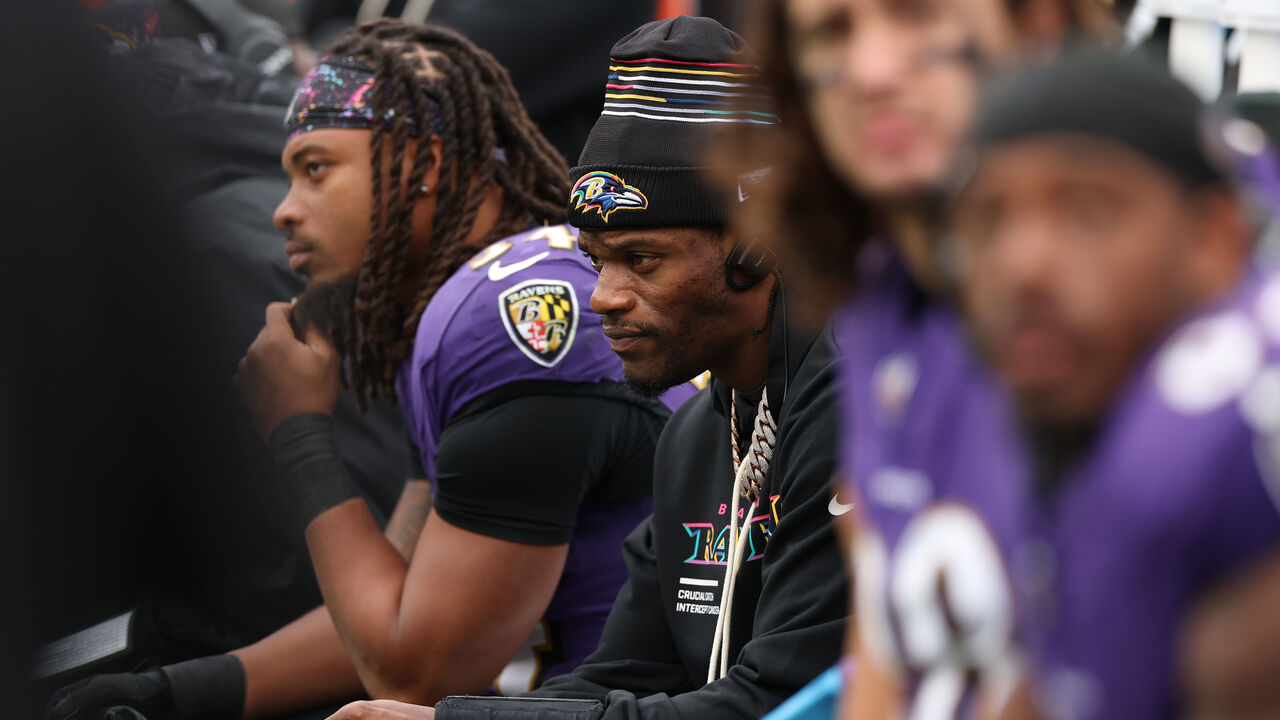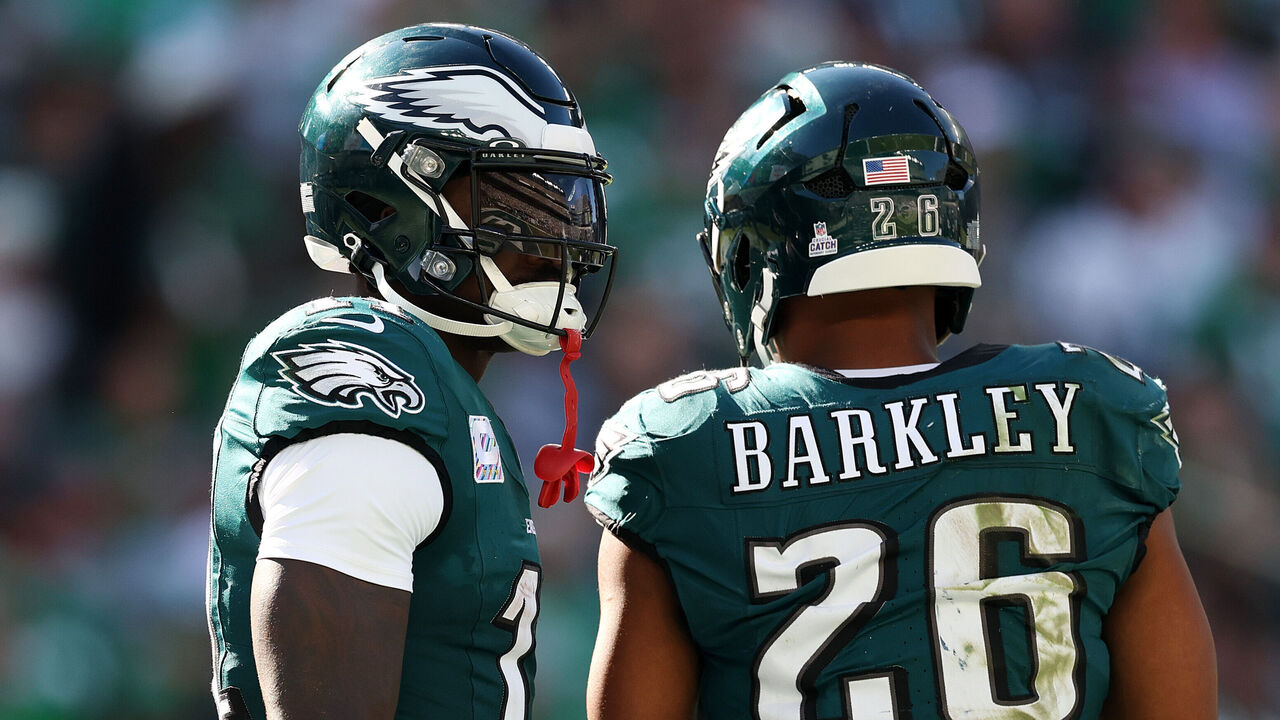Where are the good teams? From Ravens to Bills, NFL's best look alarmingly average
When Josh Allen was picked off for the second time Monday night, ending any hope of a spectacular and unlikely Buffalo comeback, the question wasn't whether the Bills were still a great team.
It was whether they were even a good one.
Buffalo, one of the preseason Super Bowl favorites, has beaten four teams with a combined three wins between them. The Bills have since lost consecutive games to New England and Atlanta, falling out of the AFC East lead in the process. The Falcons ran all over them Monday and, most alarmingly, the once-mighty Buffalo offense has run into a familiar problem: the lack of a downfield passing threat to keep defenses honest.
The Bills looked, mostly, like a team that has been found out.
Fortunately for Buffalo, there is a lot of that going around. Another of August's AFC favorites, the Baltimore Ravens, are 1-5, with an injury to Lamar Jackson compounding what had already been a slow start. Kansas City, the reigning AFC champ, might be a favorite again now, but the team is only 3-3 and third in its division.

The Houston Texans, a playoff team last season, started 0-3 and looked lost on offense (again) before bouncing back with a couple of wins. The Cincinnati Bengals, the only AFC team other than the Chiefs to make the Super Bowl over the last six seasons, lost quarterback Joe Burrow to injury and were forced to desperation-trade for Joe Flacco in a bid to save their season. Joe Flacco!
All of that has left the AFC's best records belonging to the Indianapolis Colts (5-1), who claimed quarterback Daniel Jones off the scrap heap, and the Pittsburgh Steelers (4-1), who have 42-year-old Aaron Rodgers proving that he is a slight upgrade on Russell Wilson at the position. You will forgive me if I do not believe that the Colts or Steelers will still be as unblemished at season's end.
Over in the NFC, the picture is just as muddy. The defending champion Philadelphia Eagles have lost two in a row to fall to 4-2, but more importantly, the offense has been plodding, and the explosiveness provided by Saquon Barkley and A.J. Brown last season has disappeared.

Another preseason favorite, Green Bay, is 3-1-1, including a loss to Cleveland (!), and the Packers' widely heralded trade for edge rusher Micah Parsons has not provided much in the way of tangible results while unfortunately making Jerry Jones look smart.
The San Francisco 49ers are (again) beset by injuries, the Washington Commanders have regressed to 3-3, and two teams, Minnesota and Detroit, that combined for just five losses last season have combined for four losses through six weeks.
That leaves Baker Mayfield and the Tampa Bay Buccaneers with the conference's best record (5-1), but four of their wins were by three points or less, and they are now missing a pile of key offensive players due to injury. Mayfield is a deserving MVP candidate, but the smoke-and-mirrors aspect of the Bucs' start is underscored by the fact that they are 5.5-point underdogs at Detroit on Monday night.
Is there a reason why so many of the presumed contenders have veered into the ditch? Only that the NFL would prefer it this way, where parity has once again run amok. It cannot be a coincidence that all of the teams that are struggling to live up to lofty expectations - Buffalo, Baltimore, Philadelphia, Kansas City, Green Bay, Detroit - have quarterbacks who are on giant, salary-cap-eating contracts. No one would argue that MVPs like Josh Allen or Lamar Jackson don't deserve those giant tickets, but it has long been known that having a quarterback on a cheap rookie deal is hugely valuable. Once they get into the land of the nine-figure contract extension, it becomes much more difficult to fill out the team around them.
The Bills are a representative case study in this regard. Slot receiver Khalil Shakir is making about $13 million this season, 23rd in the NFL among wideouts, and he's the only Buffalo receiver among the top 35 in terms of annual salary. Where other teams have made big investments in the position - Detroit is paying its top two receivers more than $50 million combined and Cincinnati is paying its top two almost $70 million - the Bills are hoping to get similar production out of relative bargain pickups like Josh Palmer ($9 million) and Keon Coleman ($2.5 million, still on his rookie deal). The flaws of that strategy were plain to see Monday, as Allen spent most of the night struggling to find any open receivers.
Such is life in the modern NFL: You need a star quarterback to compete. But having a star quarterback means making compromises elsewhere. There's plenty of season left to find out which of the would-be contenders will overcome them.
Scott Stinson is a contributing writer for theScore.